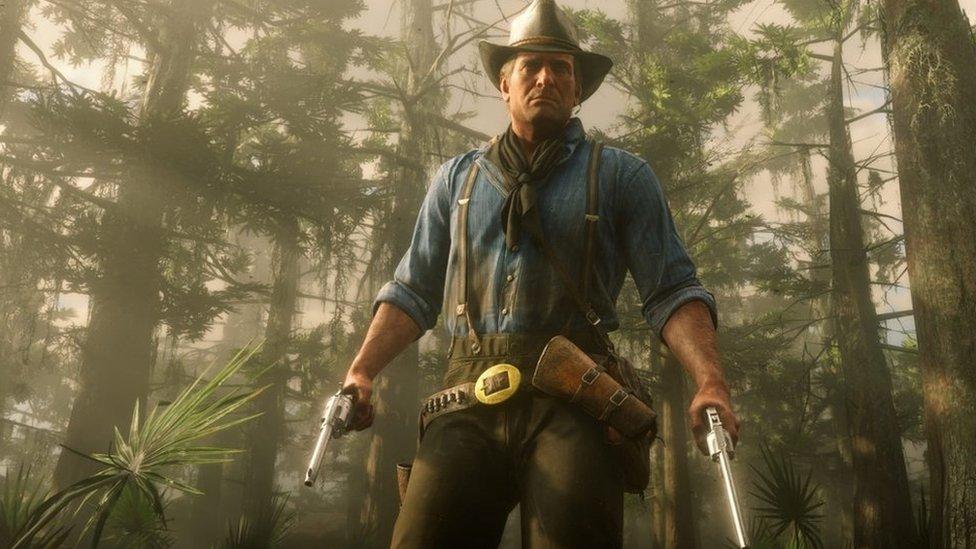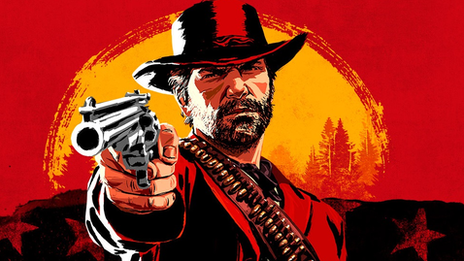Tech Tent: When gaming stops being fun
- Published

The games industry may seem glamorous but for workers it can mean low pay and job insecurity
A glamorous industry where highly paid people do exciting and creative work - that is how many see the video games business.
But on Tech Tent we hear from people who paint a different picture of zero-hours contracts, unpaid overtime and job insecurity.
The games industry now ranks with the movie and music businesses when it comes to making money - and employs people with a range of skills, from software developers to musicians and writers.
There is also a lot of fairly routine work which is poorly paid and insecure but provides a first step on the ladder for those eager to get into the industry.

Now the IWGB (Independent Workers Union of Great Britain) trade union, which represents some Uber drivers and other gig economy workers in the UK, is opening a games industry branch. It says this is one of the first unions to represent games workers anywhere in the world.
Living wage?
One of its first members is a games tester who wants us to call him Chuck - he does not want his employer, a big games developer in London, to know he is involved in the union.
His work involves checking that a game works in another language, playing it for hours on end to check for any mistakes. Sounds fun? He has no complaints about the work - it's the pay and insecurity which are his concern.
"It is zero-hours contracts, which means the company has the right to fire us at basically any time. And the wage is between £8 and £10 an hour, depending on what language you speak."
That is below the London Living Wage of £10.55 an hour - and with no sick pay Chuck cannot afford to take time off: "I had a nasty cold a while back and I had to go to work sick for two weeks. And it was just, get up in the morning, go to work, come home, fall into bed and repeat, for two weeks."
One of the union organisers Karn Bianco says firms can get away with poor conditions because there is an endless supply of eager young recruits: "This is such a dream job for many people. Lots of people want to work there, there's a lot of passion and people are passionate and often are voluntarily working lots of hours."
He tells us about something called "crunch" - the long hours expected of workers in the run-up to the release of a game. "Unpaid and excessive overtime is very common in many studios."

It took long hours to finish the hit Red Dead Redemption 2
This issue was highlighted recently when the co-founder of Rockstar games Dan Houser talked enthusiastically about the 100-hour weeks being worked to complete the huge hit Red Dead Redemption 2.
Mr Houser later clarified that he was only talking about himself and a few senior writers and there had been no expectation that other staff would work such long hours.
But Karn Bianco says the story did have an impact; "The backlash from that publicity caused them to change some of their policies and their working practices just from the attention they got."
We asked Rockstar about the crunch phenomenon in the light of Mr Houser's comments - the company pointed us towards his clarification but had nothing new to say.
But the games industry trade body Ukie (The Association for UK Interactive Entertainment) does appear to recognise that there are issues with the working culture. Its chief executive Jo Twist says it is imperative that businesses "offer working environments that are inclusive and healthy places for employees from all backgrounds".
Right now, many games firms packed with young men who work late into the night fuelled by pizza are neither diverse nor healthy,
It is never going to be hard to recruit young people to an industry dedicated to fun - but the pressure to make sure that their working lives aren't miserable is only going to grow.
Also on this week's podcast
- Published22 October 2018
